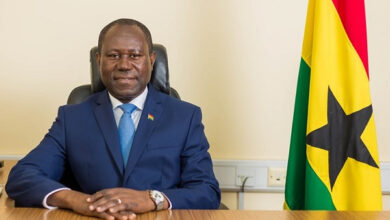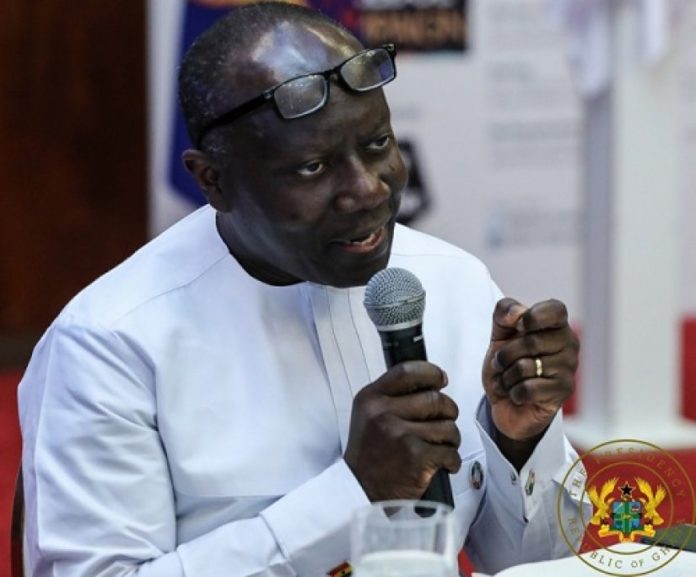Bawumia Points At “Source” Of Africa’s Economic Crises

The Vice President of Ghana, Dr Mahamudu Bawumia has asserted that Africa’s protracted economic woes emanate from “weak underlying systems”.
Among them, he said included an elusive informal economy, a non-existent identification database, cash-dominated financial systems and bureaucratic public service delivery.
“After many years of study and practice as an economist, I came to the conclusion that Ghana like many other African countries has been trying to develop with underlying systems that are very weak. These underlying systems need disruption for us to reach the whole system and they are a hidden informal economy, with no unique identification for the population.
“Our citizens could not be properly identified. It was possible to be born in Ghana, live a full life, die and be buried and there will be no trace of you on any documentation that you ever lived and stayed in Ghana. We do not have a functioning property address system in Ghana. Majority of our population was excluded from the financial system with no access to bank accounts,” he asserted as he addressed persons gathered for the 57th Congregation of the Kwame Nkrumah University of Science and Technology (KNUST) on November 24, 2023.
These, he said, have bred fertile grounds for corruption and impacted economic growth in the long run for Africa as the majority hide under the system to evade various taxes.
“Without a property address system, the collection of property taxes was also problematic. We do not have the data to tell which properties have paid their taxes and therefore who have not. It was therefore not surprising that in Ghana at the end of last year, only 9% paid property taxes and this is the case in many countries on our continent. So how do you mobilise domestic revenue in these circumstances.”
He furthered that the underlying systems of Africa also result in a proliferation of fake documentation, fake birth certificates, insurance stickers, vehicle registration, driver’s licence and many others.
Ghana Card
In the quest to steer Ghana towards economic growth, the flagbearer of the governing New Patriotic Party (NPP) said the government embarked on the digitalization drive with the introduction of the Ghana Card as bedrock.
The idea is to build a new system of digital transformation through Information Communication Technology and accurate statistics and data, according to him.
With the introduction of the identity card, he said the databases of citizens have been integrated which has in turn increased the number of Tax Identification Number (TIN) holders to over 80%.
“We thought about it that most people did not have TIN so we said your Ghana Card number will be your TIN. By taking that decision, we increased the number of people with TIN from 4% to 85%. The Ghana Card number is also the SSNIT number.
“It’s integrated with SSNIT, the Ghana Card number is also your NHIS membership number, the Ghana Card number is also linked to your bank account, the Ghana card is also linked to your SIM, it is being linked to driving license and your passport. We are building an ecosystem in which nobody will be able to hide. The nature of the ecosystem which we are building which allows visibility across a spectrum which is why we are able to do the student loan without a guarantor.”
Also, the Card could be used as an E-passport when travelling into Ghana from some 44,000 airports in the world and will soon anchor a credit system and a credit scoring system for individuals in Ghana while ghost names on public sector payroll will be history, the veep noted.
Meanwhile, he said the digitalization drive has seen major transformations in various sectors of the economy including education, finance, health, governance, public service delivery, agriculture and more.








